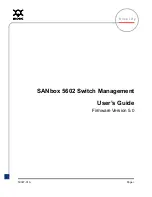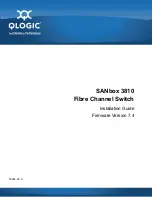
User Guide
529
Configuring AAA
AAA Configuration
2
AAA Configuration
In the AAA feature, the authentication can be processed locally on the switch or centrally
on the RADIUS/ server(s). To ensure the stability of the authentication system,
you can configure multiple servers and authentication methods at the same time. This
chapter introduces how to configure this kind of comprehensive authentication in AAA.
To complete the configuration, follow these steps:
1) Add the servers.
2) Configure the server groups.
3) Configure the method list.
4) Configure the AAA application list.
5) Configure the login account and the Enable password.
Configuration Guidelines
The basic concepts and working mechanism of AAA are as follows:
■
AAA Default Setting
By default, the AAA feature is enabled and cannot be disabled.
■
Server Group
Multiple servers running the same protocol can be added to a server group, and the servers
in the group will authenticate the users in the order they are added. The server that is first
added to the group has the highest priority, and is responsible for authentication under
normal circumstances. If the first one breaks down or doesn’t respond to the authentication
request for some reason, the second sever will start working for authentication, and so on.
■
Method List
A server group is regarded as a method, and the local authentication is another method.
Several methods can be configured to form a method list. The switch uses the first
method in the method list to authenticate the user, and if that method fails to respond, the
switch selects the next method. This process continues until the user has a successful
communication with a method or until all defined methods are exhausted. If the
authentication succeeds or the secure server or the local switch denies the user’s access,
the authentication process stops and no other methods are attempted.
Two types of method list are provided: Login method list for users of all types to access the
switch, and Enable method list for guests to get administrative privileges.
Downloaded from
















































